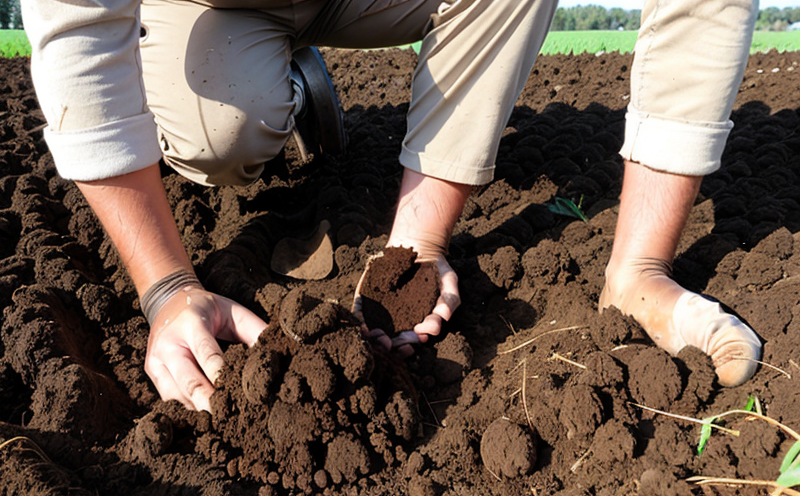Soil Buffering Capacity Testing
The soil buffering capacity is a critical parameter in agriculture and forestry testing. It refers to the soil's ability to neutralize acids or bases, thereby maintaining its pH balance. This property ensures optimal conditions for plant growth by preventing sudden changes that could harm crops.
Soil buffering capacity plays a crucial role in determining nutrient availability, as many essential nutrients are only available within certain pH ranges. For instance, phosphorus is more readily available at slightly acidic to neutral soil pH levels (6.5-7.0). Therefore, understanding and managing the soil's buffering capacity can significantly enhance crop productivity.
Accurate measurement of soil buffering capacity helps in formulating precise fertilization strategies, optimizing water use efficiency, and reducing the risk of environmental pollution from excess nutrient runoff into nearby water bodies. This is especially important for sustainable agricultural practices that aim to minimize ecological footprints while maximizing yield.
The testing process involves several steps: initial soil sampling, laboratory analysis using standardized methods like titration or potentiometric techniques, and interpretation of results based on established standards such as ISO 17266. These tests are essential for both quality managers overseeing production processes and R&D engineers developing new cultivation practices.
Understanding the buffering capacity also aids in selecting appropriate lime applications to correct soil acidity or alkalinity imbalances, which is vital for maintaining long-term soil health. By knowing how much lime will be needed, farmers can make informed decisions about soil amendments, thus enhancing overall crop yields and sustainability.
Why It Matters
The importance of soil buffering capacity cannot be overstated in the context of agriculture and forestry. Proper management ensures that soils remain fertile over extended periods without degrading into less productive states due to excessive acidity or alkalinity.
- Enhanced Crop Productivity: Optimal pH levels allow for better nutrient uptake, leading to healthier plants with higher yields.
- Eco-Friendly Practices: By avoiding overuse of lime or other amendments, sustainable farming practices can be maintained.
Eurolab Advantages
At Eurolab, we pride ourselves on providing accurate and reliable soil buffering capacity tests. Our team of experts uses state-of-the-art equipment and follows internationally recognized protocols to ensure precise results.
We offer comprehensive services including initial soil sampling guidance, detailed reports based on ISO standards, and advice tailored specifically for your farm or forest management needs.
International Acceptance and Recognition
- Australia: Soil buffering capacity tests are widely accepted in Australian agricultural practices to ensure soil health and sustainability.
- United States: The Environmental Protection Agency (EPA) recognizes these tests as essential for regulatory compliance related to water quality protection.





